| Issue #87 • May/June, 2004 |
Danny Fulks, 71, grew up in southern Ohio where his parents worked the land and milked cows, and his tightly written stories paint a vivid picture of life back in the 20s, 30s, and 40s. His stories focus on Ohio, Kentucky, and West Virginia, which were areas much like greater Appalachia and the South. I recommend reading this remarkable historical account at least twice to bring that nearly forgotten rural American existence into sharp focus in your mind. The old, worn, and sometimes off-center photos are about as good as you could get from the primitive home cameras of the day. Dave Duffy
June was the month of smooth rhythm. Tobacco and corn had taken hold. Honeysuckle vines sprouted tender buds. Onions and radishes popped through the ground. White leghorn pullets got fat on cracked corn and bugs. Strawberries were ripe. The Mud River, spring floods passed, slithered on west toward Huntington, West Virginia. The bottomland was rich with good dirt where corn, tobacco, watermelons, and muskmelons grew green and strong. Squirrels, rabbits, ground hogs, raccoons, ruffed grouse, deer lived in the woods.
|
Catfish, suckers, bass, frogs, turtles, carp gathered at riffles where water tumbled over tiny falls. Blackberries, hickory nuts, walnuts, persimmons, and pawpaws grew wild. Chickens, ducks, and guineas laid eggs. Men, women, children moved their hands and bodies in steady, endless motions. Day in, day out. Long days, short days. Hot weather, cold weather. We hunted. We gathered. We foraged.
The white leghorn pullets were plump and slick as deep summer came. Rhode Island reds and black Minorcas were coming on. Momma, ax in hand, threw out a handful of cracked corn, reached in and grabbed a white, fat one. Squawking, the bird struggled as she laid it on the chopping block, cut its head off. It died in a fit of flips and flops. She dipped the bird in a tub of scalding water, plucked its feathers, singed its body with a burning newspaper. Cut it up with a butcher knife, rolled the pieces in flour, deep-fried them in an iron skillet filled with hot grease. Brown gizzards and chunks of liver decorated the platter. I gnawed on a crisp pulley bone. The men came in from the field at noon. Dad, older brothers, and farm hands. Called hands because they were hired to lift, pull, dig, cut, hoe, work teams of horses. Momma and sister Bessie worked in the heat of the kitchen. They kept the fire hot in the coal stove, skillets and pans on each burner. Bessie fixed a mess of mashed new potatoes from the garden. Ham sizzled in a skillet. A pan of cool water from the well held fresh green onions and radishes.
|
Momma called the menwashed up with Lava soap, roll-your-own Bugler cigarettes snuffedto the table. The kitchen was redolent of grease, sweat, cooked meats, horseflies. Odd cups, saucers, plates, many from boxes of soap powder, rested on a table covered by faded oilcloth. A workday, there was no table grace. The men ate well, talked easy. They teased and laughed about skinned elbows, chigger bites, poison ivy, a guy they called “Wide Ass,” a finger wrapped in a dirty rag, still bleeding. After the third request for more potatoes, dad dumped the whole dish on a hand’s plate. More laughter. Momma and Bessie kept the dishes filled. More tea? More coffee? How about a piece of rhubarb pie?
In the shade of a maple tree in the yard, men pulled on cigarettes lit up with country matches struck on the legs of bib overalls. Back in the fields, one man worked behind the horse-drawn cultivator as others weeded the tobacco bed in the afternoon sun. Still in the kitchen, Momma and Bessie ate the chicken’s back, neck, gizzard. They cleared the table, washed and dried dishes, put them back in the cabinet. In a few hours, they got them back out and set the table for supper. Again, the stove was fired up to bake a berry cake, fry meat, scramble eggs. The family ate supper together. Hands fended for themselves. Momma saved enough corn bread so we could have it with milk at bedtime.
|
Momma and Aunt Ora passed the summer days squeezing juice from blackberries for jelly, canning peaches, corn, beans, tomatoes. They pickled cucumbers, churned butter, fried up catfish, served it on biscuits. They nurtured pole beans, sweet corn, potatoes in the garden. Tobacco, corn, hay, muskmelons grew on through dog days until they were laid by. Pawpaw, one leg gone from gangrene, buried in the Hamlin graveyard, sat on the porch in a long-sleeved shirt, strung beans. Emerson White came by each week in an old school bus converted into a peddling wagon. Momma traded eggs and chickens for sugar, lard, meal, cereal, a few treats. In the cellar, thick cream rose to the top of milk in a crock.
The high event of late summer was the all-day meeting with dinner on the ground held at the Greenville Valley Baptist Church. Great oak trees shaded the gathering of church members, a handful of hungry guests, welcome because they were on relief. Men in boaters, women in feed sack dresses carried covered dishes from car trunks up the steep plane to the long table. Momma brought fried chicken, potato salad, Kool-Aid. Over the years, everyone knew what dishes to expect. One lady always brought cooked ham, another green beans, others a variety of local grub.
Heavenly Father, we thank thee for this food/ We thank thee for those who prepared it/ We ask that thou would bless us all, help us to live our lives closer to thee/ We ask for this blessing in the name of the Father, the Son, and the Holy Ghost/ Amen. Amen, Brother Harold.
|
The table set, a feast waited as men, women, children lined up with paper plates. Mincemeat, apple, and peach pies topped off the big dinner. Jasper Sheets, getting by with an acre of tobacco farmed on the halves, gorged hisself, got foundered. Children romped in the soft grass, snuck into the woods, threw rocks at wasp nests on the outside toilet. Worn out babies slept on blankets, sucked on sugar tits. Men smoked, chewed, talked about Roosevelt. There was gossip that several jars of Belle Walter’s peaches had come up. Wasted by broken seals. Women ridded the table, packed up the scraps. Cigarette butts and quids of chewed tobacco were left in the crushed grass. An aura of calm splendor graced the scene. And for those short hours the sadness of life dissipated. The preaching, praying, singing of melancholy, gospel songs went on until it was time to go home and milk. That evening we made fun of Ethel Fowler’s green beans. Just like last year. Not fit to eat.
The heat pressed on through September and the harvest of tobacco, corn, turnips, pumpkins, orange and yellow gourds. As the year wore on and November came, dad cut down on a fat hog with a twenty-two. He and the hands strung the hog up to a tree limb, dipped it in a barrel of scalding water. They scraped its hair off with butcher knives, gutted the carcass. They threw away the guts, cut up the hams, tenderloin, pork chops. Momma fried up the fresh tenderloin, canned sausage in Mason jars, fried the brains. We took the leftovers to school in a lard bucket. The men smoked hams over a fire made from saplings, salted slabs of bacon, stored them for winter. Rabbits, squirrels, and ground hogs got us through when the good meat was gone.
|
There were a few special dishes for Christmas. Momma cooked a goose, sent my older brother over to Simms Store in Hamlin to get fresh oysters for dressing. The aroma of potato soup and heat from the wood stove permeated the kitchen. Rags stuffed in cracks around the edges of windows and doors kept out the cold. Feeding and milking cows, cleaning out the barn, carrying wood and coal went on every day. The barnyard was covered with frozen cow crap and mud. Winter days were short and bleak. Long before daylight, Momma was up stirring fires, frying eggs, baking biscuits, fixing red-eye gravy. Coal oil lamps flickered. Farm programs and hillbilly music came through on the battery radio: “Pass the biscuits Miranda/I know that I’m going to die./ Dam those biscuits, Miranda/I knowed they’d get me by and by.”
In February, ground still frozen, smooth rhythm began again. Sites for tobacco beds were picked out. The tinkling of supper dishes from the kitchen proved Momma was in her place. The big, greasy breakfast before the men went hunting was as sure as the smell of gun oil. Hoppy number nine. June came, again we planted. Another batch of baby chicks hatched out. Momma got the butcher knife, dishpan, went up the road to pick greens. Dad harnessed the horses. Nineteen-forty-two, the War came. Brother Harold got drafted. I learned to milk, how to squirt it from the cow’s tits to the cat’s mouth and in Freddie McGuire’s face. Pawpaw went to be with the Lord, joined his leg in the grave. Bessie got married and moved to town. We got a better used car. And, like the high rituals of acolytes, candles, robes, toasts, formal dinners among the rich, the simple rituals of the poor went on.
(Danny Fulks is Professor Emeritus, Marshall University in West Virginia, and an adjunct professor at Ohio University. He is the author of Tragedy on Greasy Ridge: True Stories from Appalachian Ohio, available from amazon.com, danny.fulks@adelphia.net, and the Jesse Stuart Foundation, Ashland, KY, (606) 326-1667.)


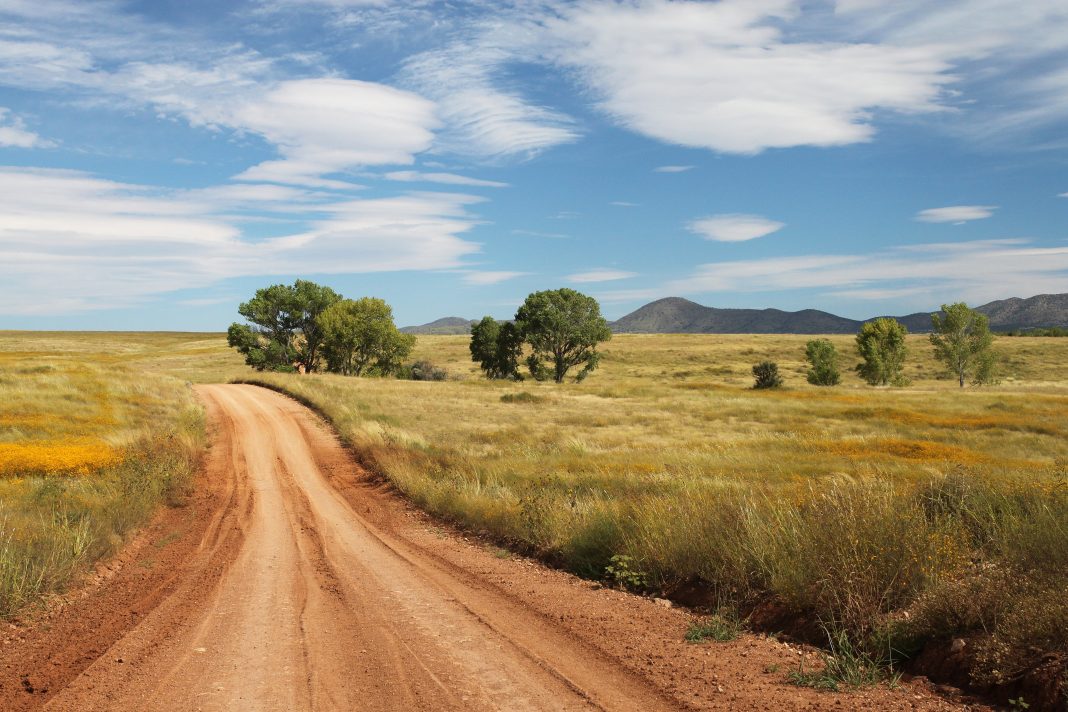





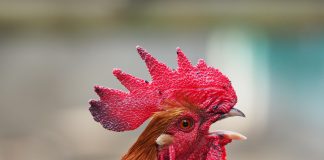
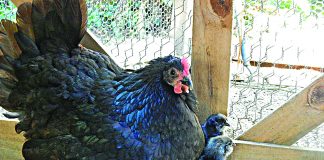




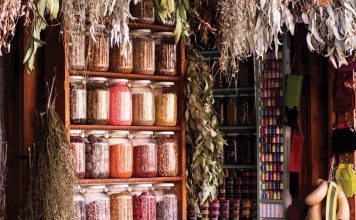
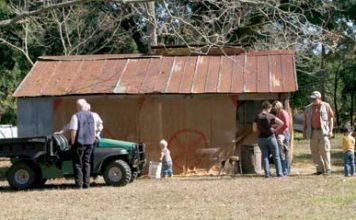
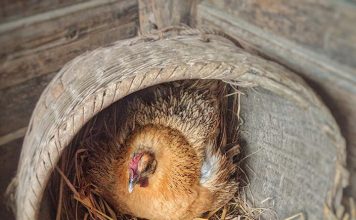
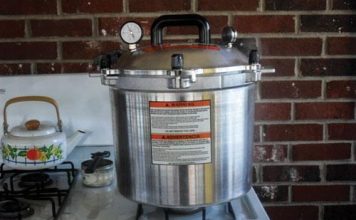
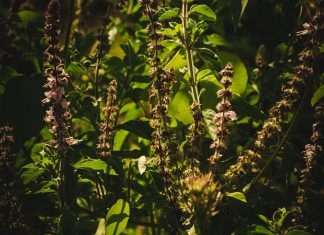
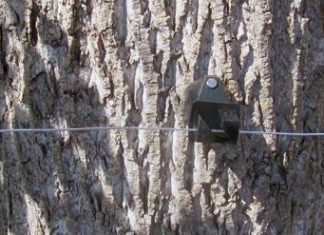
I grew up w/parents and grand parents doing the same kind of hard work, dairy farming, gardening, etc. in Rural Wise County, Texas. I was born in the 1940’s and 2 sisters, one born in 40’s and last in yr. 1950. Don’t know why we all changed how we lived or how they raised their children differently, then their children have raised their children differently. i guess my/our generations were the last to have grown up doing chores and watching our parents and grandparents work so hard. I am glad I had their training and to this day know hard work is a strength, not a weakness.